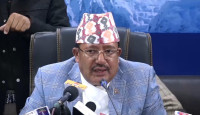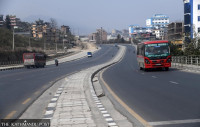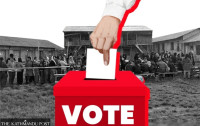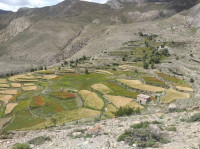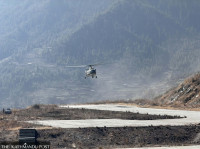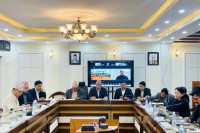National
Nepal’s missions abroad have little to show in seeking Covid-19 assistance
Even as the country battles a pandemic and the world has shown concern, diplomats have failed in actively lobbying for support.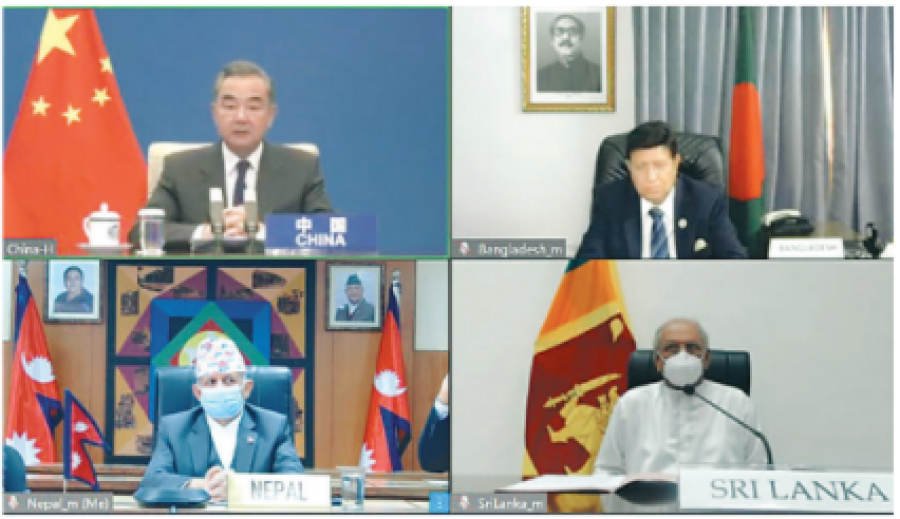
Anil Giri
Nepal’s deepening virus crisis has now started to draw the attention of the world community. On Wednesday, several members of the United States Congress “expressed alarm” about the situation in Nepal.
An official with the United States Agency for International Development said coronavirus related aid has now become a “priority”, according to the Washington Post. There was no indication of how soon it would materialise, the paper said.
Members of the public have been signing petitions to urge the world community to provide vaccines for Nepal, which is at a loss over bringing in the shots, which are the only option to save lives now.
The raging Covid-19 pandemic has already overwhelmed Nepal’s healthcare system and hospitals are shutting their doors to patients, citing a lack of oxygen, beds and ventilators.
Amid this, analysts are now wondering if Nepal’s own diplomatic efforts have been far-reaching enough to secure aid for a country.
“I have not seen or observed any sincere efforts from the government to seek international support at this time of crisis,” said former foreign secretary and ambassador Durga Prasad Bhattarai. “Most of this assistance is coming from the donor side since they have realised that they should support Nepal.”
Nepal has received 400 oxygen cylinders from China which has pledged to provide 3,500 as a grant although oxygen manufacturers have been saying they need 20,000.
On Friday, 24 oxygen concentrators came from Thailand.
But there needs to be more diplomatic outreach to garner aid, analysts say.
On Thursday, former foreign secretary and ambassador Madhu Raman Acharya addressed Foreign Minister Pradeep Gyawali on Twitter and asked him to announce a “ humanitarian crisis” in the country and prepare a list of Nepal’s requirements and correspond at the head of government level for assistance to fight the pandemic.
Acharya also advised Foreign Minister Gyawali to apprise the Kathmandu-based diplomatic community of the situation on the ground and to mobilise Nepali missions abroad.
In response to Acharya’s tweet, the Ministry of Foreign Affairs said there have been separate correspondences with the neighbouring countries, development partners and the highest diplomatic level for aid including vaccines.
But there is little to show for it.
“We do not know whether the government has sought support from the international community or not or if it has asked Nepal’s mission to ramp up their efforts to get the support,” Leela Mani Paudyal, former chief secretary and ambassador to China, told the Post. “We have not seen the results yet since the pandemic has hit the country hard for over one month.”
Nepal has its ambassadors in what it considers its most important development partners–India, China and the US.
Nilamber Acharya, Mahendra Bahadur Pandey and Yubaraj Khatiwada are serving in New Delhi, Beijing and Washington DC, respectively and have received ministerial-level protocols due to their past credentials.
But they have not been active, according to sources within the Foreign Ministry.
“All three ambassadors are hunkered down due to age and health-related issues,” a joint secretary at the Foreign Ministry told the Post on condition of anonymity. “Acharya and Pandey are getting old and they hardly come out from the missions due to the pandemic and Khatiwada has some health-related issues so he is not getting out from the mission too frequently. So how can we expect support and cooperation without them being proactive?”
Acharya is 78, Pandey 73 and Khatiwada is 64.
A Nepali diplomat based in Washington DC told the Post over the phone that Nepal has sought three to five million AstraZeneca vaccines from the US government.
The US has already announced that it would share 60 million doses of AstraZeneca vaccine with the world within a few months.
“But US officials have communicated to us that the US National Security Council and Department of Health and Human Services make the final call on vaccine support,” the diplomat told the Post on condition of anonymity. “Definitely the US looks after strategic interest and maximum return while providing vaccine support.”
A list of 14 life-saving drugs have also been handed over to US officials, he said.
The US embassy in Kathmandu has said that the pandemic aid is not about trading favours.
“The United States won’t trade shots in arms for political favors. This is about saving lives,” said an embassy statement on Thursday.
It is not just existing official diplomatic channels but other means also needs to be mobilised to seek support, analysts say.
“There are several ways to seek support and lobby. They can be mobilized through several channels,” said Bhattarai, the former foreign secretary. “Why doesn't the government mobilise former politicians or diplomats to seek their help and support through their contacts. Some ministers and some missions seem active to garner support but that is not adequate.”
Nepal’s efforts to seek international aid so far have been half-hearted.
According to two Foreign Ministry officials, an idea had been floated to make an appeal for international support from the prime ministerial-level but the idea was later dropped as every country in the world is grappling with the pandemic and if there would not be sufficient response, it would be a diplomatic disaster.
“If we could not get enough support it would be a disaster or surrender. So the idea of calling for international support was dropped,” one of the two officials told the Post on condition of anonymity.
It was only earlier this week that Prime Minister K P Sharma Oli, in an article in a London-based newspaper said, “We need help.”
But the Foreign Ministry two weeks ago had asked its Nepali missions abroad to ramp up efforts seeking international support and cooperation and also to explore possibilities of finding pandemic-related supplies from the market.
“We have mobilised our missions and we are also coordinating with diplomatic missions and development partners in Kathmandu. But it will take some more time to get the results,” Sewa Lamsal, Foreign Ministry spokesperson said. “Since every big or small and poor or rich country is hit hard by the pandemic, there is worldwide demand for items like vaccines, oxygen and other medical equipment.”
But with the lacklustre efforts of the government, it has been left to the civil society to make appeals and sign petitions for coronavirus-related aid like vaccines.
But it is not the job of the civil society to seek international support but it should be made by the government, said observers.
“Either the Nepali missions have become ineffective or the government has lost its credibility,” said Poudyal, the former ambassador to China. “If the government has lost its credibility, any effort made by ambassadors does not work. But if the credibility of the government is intact, then it shows our approach has not worked.”
India has been receiving massive amounts of aid from all over the world and Nepal too should make an effort to mobilise support as the country faces such a crisis, observers point out.
Since India itself has been hit hard, Nepal could have explored possibilities of seeking support from China, the northern neighbour. But there does not seem to be any effort from Kathmandu. Nor any tangible attempts have been seen from Nepal’s mission in Beijing.
“Look at the way India is getting support from across the globe, from the US, Japan, Israel, Europe and many more countries,” Nischal Nath Pandey, Director of the Center for South Asian Studies said. “We are in such a bad shape but we are not getting enough and required support in a big way that fulfills our requirements.”
“It should be a single-point agenda of all Nepali ambassadors all over the world—to get emergency support for Nepal.”




 14.86°C Kathmandu
14.86°C Kathmandu
